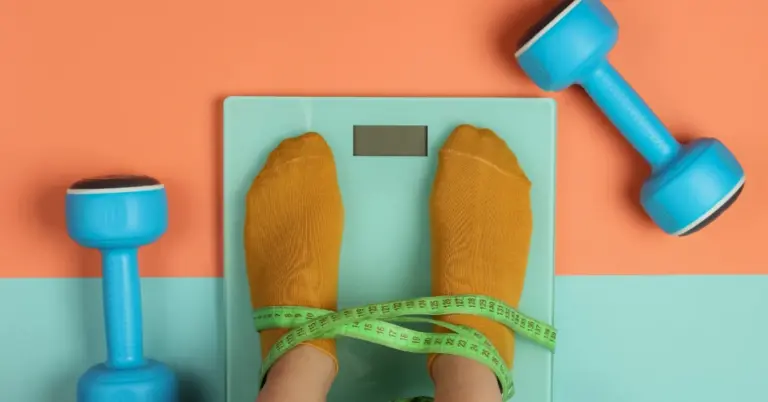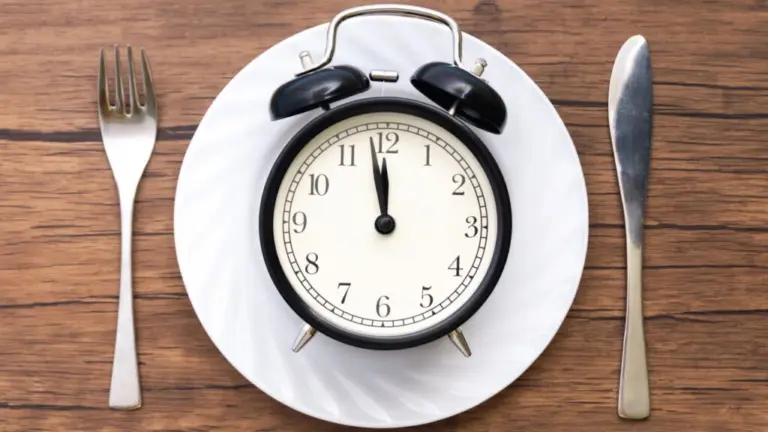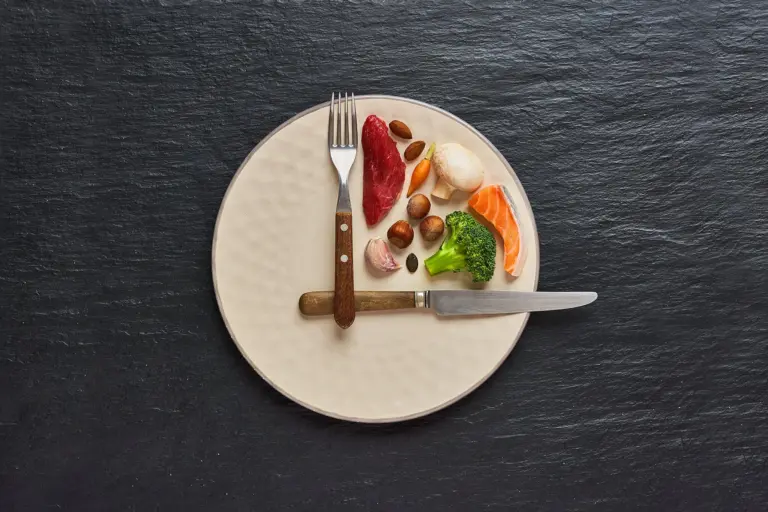Hello, my friend, is everything okay? Today, I'm going to talk to you about a topic that has been gaining a lot of attention lately: intermittent fasting.
Now, calm down, don't go around thinking that I'm going to convince you to starve yourself, okay? On the contrary, intermittent fasting is much more about learning how to make peace with food and, as a bonus, improve your body and health. And I can assure you, it works! Let's go!
Intermittent Fasting: What Is It, Anyway?
First of all, I know you must be thinking: “Ah, here comes another one of those internet food fads!”
But here’s the truth: intermittent fasting is not a crazy diet or a miracle pill. What it does is help your body make better use of nutrients and, at the same time, burn that extra fat that bothers you.
Simply put, intermittent fasting is an eating pattern where you alternate between periods of eating and fasting. This doesn’t mean going without food for days, as some might think. The idea is to give your body more time to digest and process the food you’ve eaten, as well as to stimulate fat burning.
And you know what? I personally tried it, and I can tell you: it's a life-changer! I started to notice more energy, less bloating, and of course, a more defined body. I'll tell you everything you need to know to get started, without any complications.
How Does Intermittent Fasting Work?
Now that you understand the concept, it's time to understand how put this into practiceThere are different ways to practice intermittent fasting, and the beauty of it is that you can adapt it to your lifestyle.
I, for example, started with the famous 16 hour fasting and 8 hour feeding window. It's not as difficult as it seems, and I'll explain how it works.
The 16/8 Plan
This is the most common format, and the one I use the most. You go 16 hours without eating and have an 8-hour window to eat.
Sounds radical? It may be, but you soon realize it’s not that complicated. Here’s an example from my day:
- Dinner at 8pm: after dinner, I only drink water or tea (without sugar, of course).
- Wake up and skip breakfast: At first, I even felt a little hungry, but I soon got used to it.
- Lunch at noon: 12pm, after 16 hours of fasting, you can eat normally.
- Dinner until 8pm: and repeat the process.
But, before you ask me: no, it's not a fast where you only drink liquids. You can eat well, you just have to respect this schedule.
Other Varieties of Intermittent Fasting
Well, if this 16/8 scheme doesn't work for you, you can try other formats. Here are some other variations:
- 12 hour fast: much more peaceful, where you go 12 hours without eating and have 12 hours for a meal.
- 24-Hour Fast (Once a Week): This one is for the brave! A whole day without food, just water or tea.
- Alternate fasting: You alternate between normal eating days and fasting days (like 500 calories on a fasting day).
I would say that the 16/8 It is the most balanced, especially if you are just starting out. It allows you enough time to adapt your body to the process.
Practical Tips for Getting Started with Intermittent Fasting
Now that you know how intermittent fasting works, it’s time to put it into practice. And, believe me, with a few simple tips, you’ll be able to navigate this process without suffering.
1. Start Slowly, Take Your Time
Don’t try to start fasting for 24 hours right away. Start slowly, trying out a 12-hour fast and increasing the time as you feel comfortable. Your body needs time to adjust to this new pattern.
2. Stay Hydrated! Water is Your Friend
During your fast, don’t forget to drink plenty of water. This will help control your hunger and give you more energy. You can also drink unsweetened tea. It helps keep your metabolism active and will also help break the boredom of “not eating”.
3. Don't Skip the Post-Fasting Meal
When your fast is over, don’t be tempted to eat anything. Your first meal should be balanced, with protein, carbohydrates, and healthy fats. I always prefer something like scrambled eggs with avocado, for example. It will keep you fuller for longer and provide the nutrients your body needs.
4. Know Yourself! Listen to Your Body
I always say this: fasting is not a competition, and there is no “right” or “wrong” here. If you feel like you need a little more time to adjust, take it easy. The important thing is to listen to what your body is asking for and not force yourself.
5. Consistency is Key
The biggest tip I can give you is: be consistent. Intermittent fasting won’t transform your body overnight. The key is to keep up the pace and not give up. Over time, your body will adapt, and you’ll see incredible results.
Benefits You Will Notice Quickly
Now, let’s talk a little about the benefits. Because, after all, you must be asking yourself: “Is it really worth it?” Here are the points that, in my experience, make all the effort worthwhile.
- Body fat reduction: Intermittent fasting helps burn fat more efficiently.
- More energy: Without glucose spikes, you will notice an increase in energy levels throughout the day.
- Better digestion: Since you have fewer meals, your digestive system can work more efficiently.
- Mental focus: It may sound crazy, but fasting gives you an insane amount of mental focus! I noticed that my mental clarity improved a lot when I started practicing it.
And look, these are just some of the benefits. Trust me: after a while of practicing, you will feel all of these.
Myths and Truths about Intermittent Fasting: What You Really Need to Know
news
Final Thoughts: Take the Next Step
So, shall we begin? intermittent fasting is an excellent strategy for those who want to improve their health, lose weight and gain energy.
As I mentioned before, the most important thing is to find your rhythm. Don’t rush into doing everything at once. Take it slow, adapt, and over time, you will see results.
And remember: the most important thing is the commitment with the change, without rushing, without pressure. If you still have questions or would like to know more details, you can call me! I'm here to help you on this journey.
Now, get involved and enjoy the benefits of intermittent fasting! Just take the first step.




